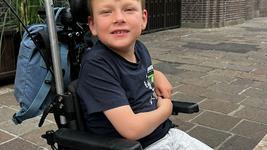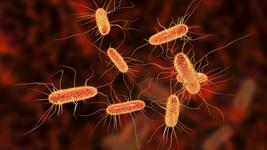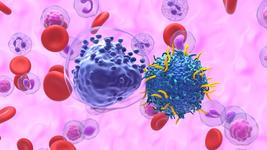Intellia Therapeutics Gets FDA Green Light to Initiate U.S. CRISPR Trial for Hereditary Angioedema
CMN Intelligence - The World’s Most Comprehensive Intelligence Platform for CRISPR-Genomic Medicine and Gene-Editing Clinical Development
Providing market intelligence, data infrastructure, analytics, and reporting services for the global gene-editing sector. Read more...
Intellia Therapeutics announced earlier this month that the FDA had approved its application to initiate a Phase 2 clinical trial for NTLA-2002 for hereditary angioedema (HEA) in the U.S. This move allows the company to include the U.S. in its global Phase 2 study of NTLA-2002, which is already ongoing in the Netherlands, New Zealand and the UK.
HAE is a rare disease characterised by severe inflammatory attacks with swelling in various organs and tissues. Plasma kallikrein is a protein that is known to drive multiple inflammatory pathways, including the production of the inflammatory mediator bradykinin, which is overproduced in HAE. Plasma kallikrein inhibition is among the current treatment approaches to HAE.
NTLA-2002 is designed to knock out the Kallikrein B1 gene
NTLA-2002 is an in vivo CRISPR-Cas9 gene-editing therapy candidate that is designed to knock out the target gene kallikrein B1 (KLKB1) in hepatocytes. This gene encodes prekallikrein, a precursor of plasma kallikrein, thus its knockout permanently reduces plasma kallikrein activity and halts the production of bradykinin to prevent HAE attacks.
NTLA-2002 is administered intravenously as a single dose of Cas9 mRNA and gRNA via lipid nanoparticles. Pre-clinical studies demonstrated sustained and therapeutically relevant reduction in plasma kallikrein activity following a single dose in non-human primates.
Positive interim clinical data for NTLA-2002
In September 2022, at the Bradykinin Symposium held in Berlin, Intellia Therapeutics shared positive interim clinical data from the NTLA-2002 trial. The data presented were from an initial six adult patients with HAE in the Phase 1 dose-escalation portion of the study, with a data cut-off date of July 27th, 2022. These participants received single doses of 25 mg (n=3) and 75 mg (n=3) of NTLA-2002 via intravenous infusion, and changes from baseline values of plasma kallikrein protein were measured for each patient.
The company revealed that administration of NTLA-2002 led to dose-dependent reductions in plasma kallikrein and achieved maximal reductions by week eight, with mean reductions of 65% and 92% in the 25 mg and 75 mg dose cohorts, respectively. Furthermore, these reductions were sustained through at least 16 weeks in the 25 mg cohort and eight weeks in the 75 mg cohort for which complete cohort biomarker data were available.
Intellia presented updated data from the NTLA-2002 trial at the American College of Allergy, Asthma & Immunology Annual Scientific Meeting, which was held in November 2022. The data presented at that time were from 10 adult patients with HAE in the Phase 1, dose-escalation portion of the study, with a data cut-off date of September 28th, 2022. Single doses of 25 mg (n=3), 50 mg (n=4) and 75 mg (n=3) of NTLA-2002 were administered via intravenous infusion, and changes from baseline values of plasma kallikrein protein were measured for each patient. These data revealed that for the 25 mg and 75 mg cohorts, deep reductions in plasma kallikrein levels were sustained through the full observation period, which ranged from week 16 to week 32.
HAE attack rates are also being measured in the ongoing study, and so far treatment at the 25 mg and 75 mg dose levels has led to a significant reduction or complete elimination of HAE attacks.
The FDA granted Intellia with an orphan drug designation for NTLA-2002 for treating HAE in September 2022. In January 2023, the company was awarded an Innovation Passport by the U.K. Medicines and Healthcare products Regulatory Agency for NTLA-2002 for the treatment of HEA.
We will provide further updates on the NTLA-2002 clinical trial as they become available.
For a complete overview of CRISPR IND approvals and ongoing gene-editing clinical trials, check out CRISPR Medicine News' Clinical Trials Database.
To get more of the CRISPR Medicine News delivered to your inbox, sign up to the free weekly CMN Newsletter here.
Tags
ArticleNewsClinical News UpdatesHereditary angioedema, HAERare DiseaseCRISPR-CasCas9FDAIntellia Therapeutics, Inc.
CLINICAL TRIALS
Sponsors:
Base Therapeutics (Shanghai) Co., Ltd.
Sponsors:
Base Therapeutics (Shanghai) Co., Ltd.







